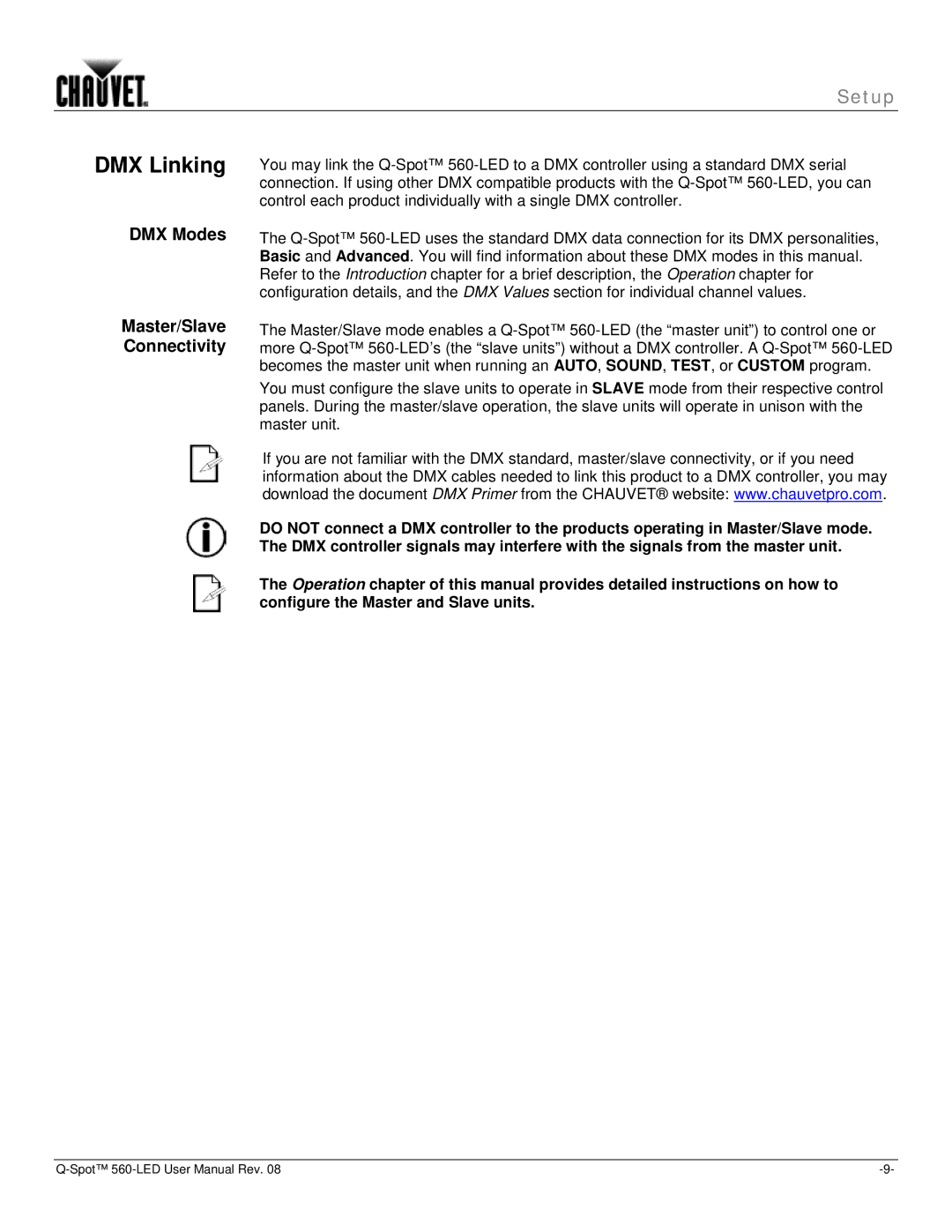
Setup
DMX Linking
DMX Modes
Master/Slave
Connectivity
You may link the
The
The Master/Slave mode enables a
You must configure the slave units to operate in SLAVE mode from their respective control panels. During the master/slave operation, the slave units will operate in unison with the master unit.
If you are not familiar with the DMX standard, master/slave connectivity, or if you need information about the DMX cables needed to link this product to a DMX controller, you may download the document DMX Primer from the CHAUVET® website: www.chauvetpro.com.
DO NOT connect a DMX controller to the products operating in Master/Slave mode. The DMX controller signals may interfere with the signals from the master unit.
The Operation chapter of this manual provides detailed instructions on how to configure the Master and Slave units.
